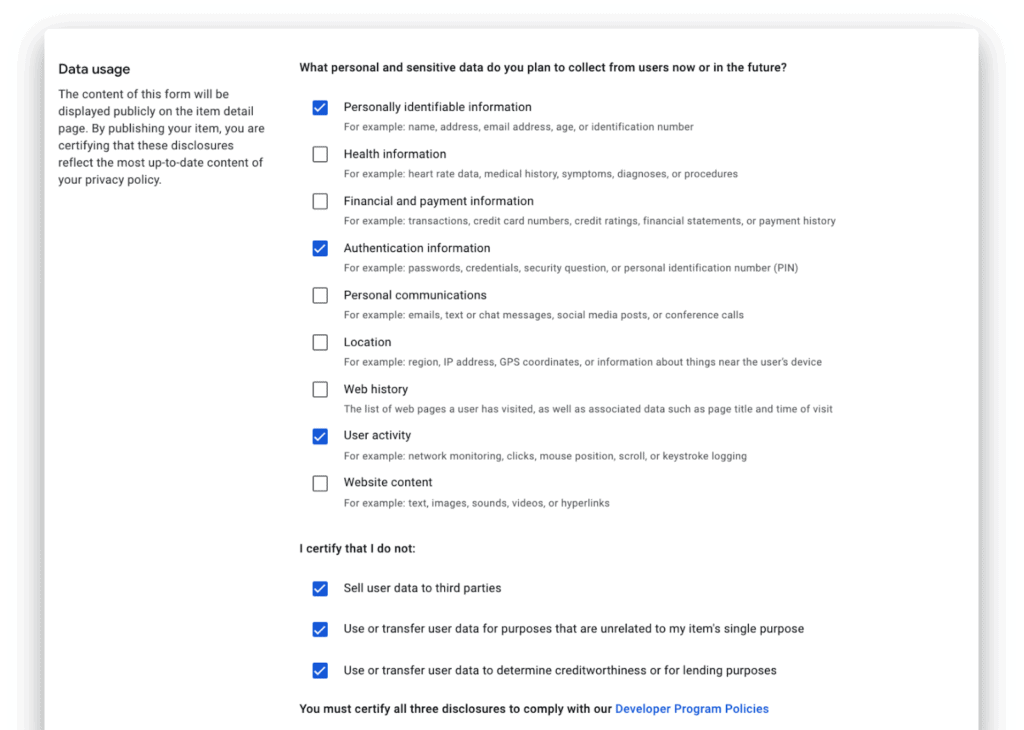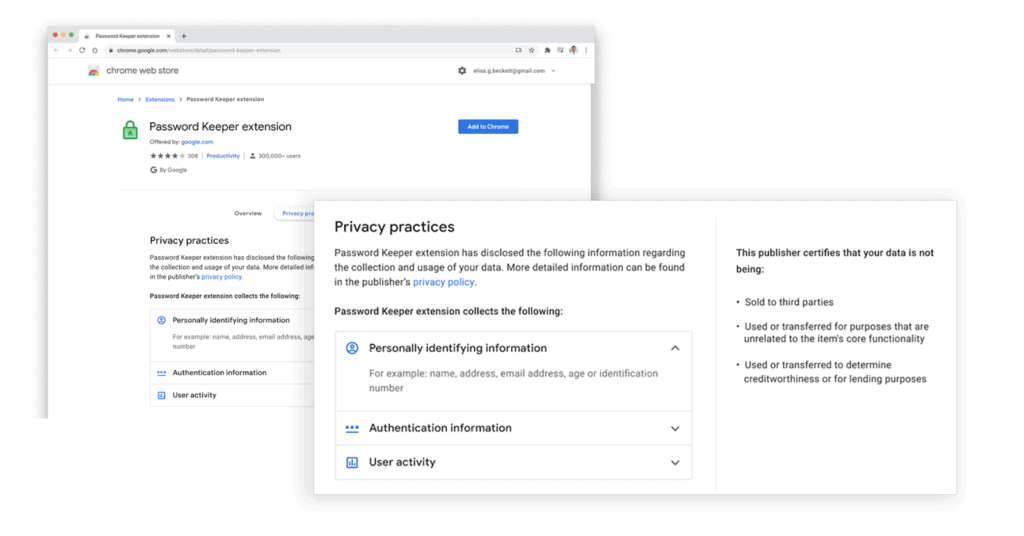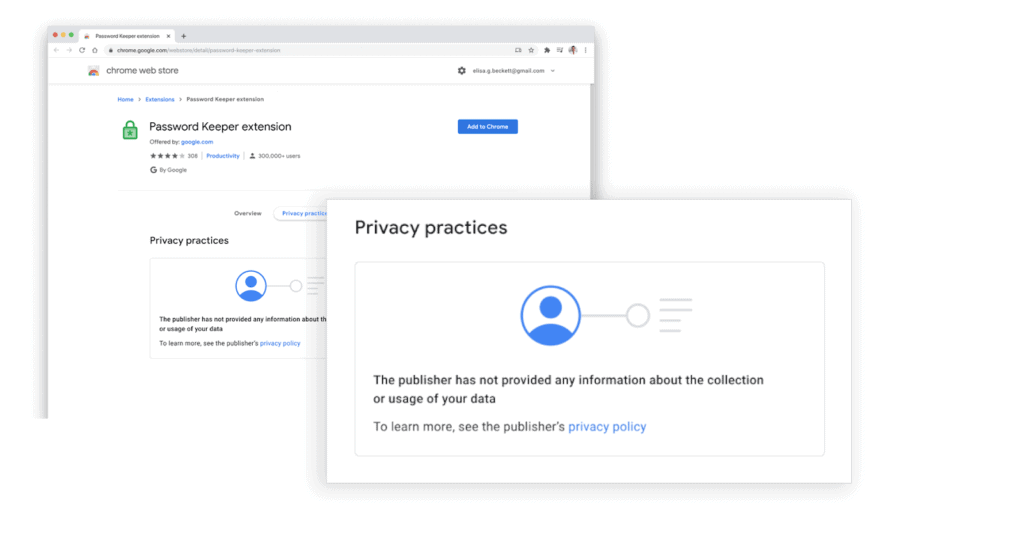We live in a world where privacy is a myth and data is turning into the new currency. Every day we see the news of data breach making rounds on the internet. Whether it is Facebook, Instagram or YouTube or any other social media platform, most of them have faced a data breach.
In an attempt of bolting its doors from future data leaks, Google has updated its security policies. In a recent blog post, Google has announced that it will be adding a new section on its Chrome Web Store where extension developers have to give information collected by the extension and its further use.
Google’s Chrome Web Store New Privacy Policy
Recently we have seen many companies making changes in their privacy policies. For instance, last month Apple directed app developers for its App Store to provide privacy-focussed labels. This move will let iPhone users review the app’s privacy practices before downloading the app.
Google’s new privacy policy is also focussed on the same. The new privacy policy which will come into effect from January 18, 2021, is intended to make data disclosure policies of chrome extensions more transparent.
Now Chrome extension developers have to submit the details of users’ data usage from the privacy tab in the developer dashboard. In this new section, developers have to specify the type of data they are collecting and developers’ certification validating to comply with Google’s new Limited use policy. The new disclosure form is grouped by category to make it easier for extension developers, said Google in its post. 
What change does it offer?
Once in effect, this new policy will limit the extension developers from using the users’ data from certain practices. For example, it will prohibit the extension developers from selling the user data for targeted advertising, establishing creditworthiness or to any other information reseller.
They also have to ensure that users’ data transfer benefits the user and must comply with the new privacy policy. This will give Google chrome users more control over their data accessed by extensions.
While Google has also cleared that the usage of data benefits the users and essential for the proper functioning of extension.
Implications of this policy
In a bid to be more transparent in data handling of users, Google announced this policy update. However, if a developer fails to comply with these updates, their listings won’t be taken down from Chrome Web Store. Instead, the listings will say that the publisher of this extension hasn’t provided any information regarding the usage and collection of your data.
Here, the question arises what will a user gain from this update?
How many users do we know who read these privacy policies or usage disclosure before downloading the extension or app? Isn’t it the platform’s responsibility to check whether the extension developers were right or not? But with this move, Google has put the ball of privacy in between the users’ and extension developers.
In addition to this, in the case of non-compliance with the new policy, the present regulations are not enough. Google will have to introduce the more serious policies and mechanism for the security of user’s data.
Conclusion
Companies are becoming more careful in handling user data, but sometimes accidents happen. That’s why while using third-party extensions and software you should be careful.
Always check the permissions of apps and extensions before installing them because at the end of the day it is your data and you have to take care of it.
